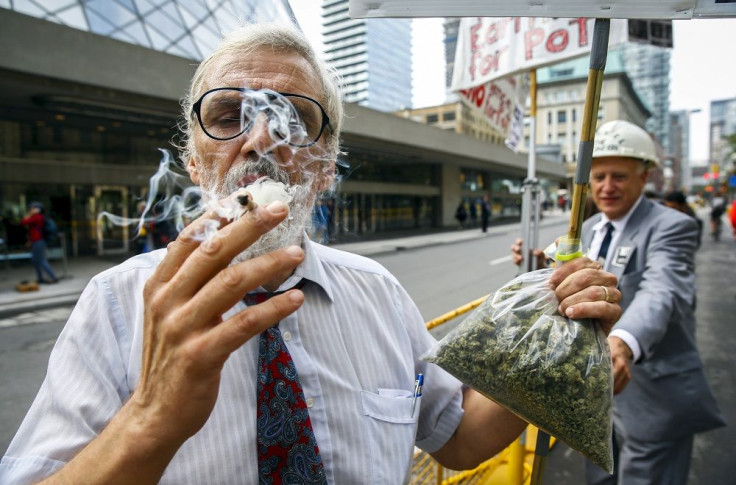From weed-smoking baby boomers to cannabis-treated patients, senior citizens have become the new market for medical marijuana

To those who are concerned that legalisation of cannabis will spawn a community of pot-smoking teenagers, park aside those fears. To begin with, a decades-long study conducted by the National Institute of Health from 1991 through 2014 arrived at the conclusion that making recreational marijuana legal will not necessarily increase its use among teenagers. However, the reverse is true: it is these adolescents’ grandparents who are asking that cannabis — but this time, of the medical kind — be made more available and affordable. Legalisation can certainly help. These so-called Baby Boomers, who are aged 55 and above, have taken to cannabis as a way to alleviate joint pain, remove insomnia and prevent the spread of cancer.
CBS News first revealed in a groundbreaking story the trend about how today’s seniors are turning to medical marijuana to restore their physical vitality, boost their health, treat certain illnesses and even reclaim a measure of their lost youth. The seniors interviewed in the story, with ages ranging from 55 to 78, say that rubbing grounded and pulverised cannabis on their aching back, legs and shoulders removes the pain.
Taking a few liquid drops also helps them sleep better and decreases the inconvenient tossing and turning some of them frequently experience late at night. Nerve agony that is brought on by other conditions like diabetes is also lessened by consuming cannabis. Dr Igor Grant, chair of the University of California’s Department of Psychiatry, confirms that “ there is increasing evidence that cannabis is helpful in the management of certain kinds of pain.”
Convenience is another reason why many elderly citizens are taking on cannabis as a medicine, which is another point arguing in favor of its legislation. Seniors in Canada can certainly empathise with their American peers, says medical marijuana advocate Mark McCaul who is applying for the proper government papers to convert his “compassionate shop” into a regulated dispensary. In an interview with The Prince Albert Daily Herald , McCaul points out one of the attractions of medical marijuana to his grey-haired customers: “they have pills on top of pills on top of pills and most of their ailments can be relieved by medical marijuana.” McCaul also claims that seniors will become the “biggest growing community in the cannabis market.”
The CBS News report would certainly back him up. While senior citizens comprise only 14 percent of the American population, they constitute a bulk 30 percent of the medicine-consuming community who pharmaceuticals cannot ignore. These Baby Boomers have the means and the money to pay for medical marijuana, and they will be compelled to do so if they find it a more useful solution for their health concerns.
Leslie Kahn , the 62-year-old blogger for Chicago Now, says that her generation has always had a soft spot for cannabis. They grew up smoking it as weed in their youth and used it to de-stress once they started earning their paychecks to support their families. Negative buzz bumped off cannabis from their medicine cabinets, to be replaced by alcohol as the entertainment-inducing substance of choice. However, now in their sunset years, the legalisation of cannabis among the US states, coupled with research that shows its medical advantages, has rekindled their interest in the weed.
The dissemination of accurate information about medical marijuana can certainly open the minds of many patients, not just seniors, to its health benefits. Health and wellness company Med-X, Inc ., which is based in California, publishes an online magazine called The Marijuana Times to discuss the latest research about cannabis and the various ways it has been used to treat medical conditions. At the same time, it addresses concerns like fears of a drug overdose while debunking myths that marijuana is a lethal drug.
However, perhaps no argument can be stronger than a testimonial. Kahn’s eloquent rendition of her decades-long cannabis use just might have won over a few of her own contemporaries.
“Medical cannabis use takes care of that achiness and allows me to ‘sleep the sleep of the damned’ whereby I awake refreshed and ready to face a new day … There are new findings that prolonged cannabis use has preventative qualities which act to keep the body healthy and free from disease. I'm in pretty good health and I definitely credit my decades-long usage of cannabis for that,” Kahn said.
The seniors of this world just might have rediscovered a healthier, more energetic ‘second life,’ courtesy of their use of medical marijuana.
Editor's note: The author's insights as indicated in this feature are entirely his own and not of IBT Media.





















